Rome was part of history for over 1,000 years, and the list of Famous Romans could be much longer than what I have presented.

The country with humble beginnings would become the greatest power of the Ancient World, and their ideas are still discussed today.
Also Read: Famous Roman Gladiators That Dazzled the Crowds
Their rise was foretold by the Biblical prophet Daniel, who interpreted a vision of Nebuchadnezzar and foretold the rise of three empires after the fall of Babylon: The Persians, The Greeks, and The Romans.
Their practicality is what separated them from others and contributed to the size of their cities and the empire.
Jump to:
1. Julius Caesar
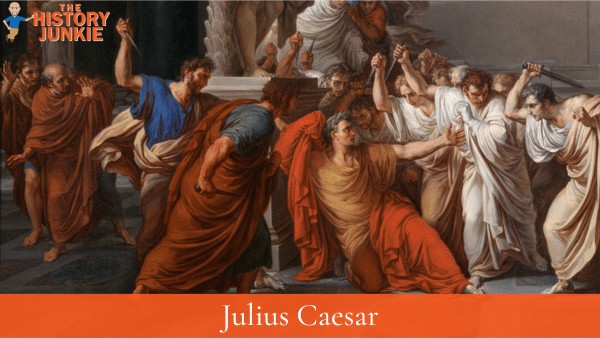
Julius Caesar was a Roman general and statesman who lived from 100 BC to 44 BC. He was one of the most successful military commanders in Roman history, and he also played a major role in the political life of the Roman Republic.
Caesar was born into a wealthy family of the Roman aristocracy. He studied law and oratory, and he also served as a military tribune.
In 58 BC, he was appointed governor of Gaul, where he led a successful campaign against the Gallic tribes. This campaign made him a popular figure in Rome, and he was elected consul in 55 BC.
Also Read: Julius Caesar's Accomplishments
In 49 BC, Caesar crossed the Rubicon River, which marked the boundary between Gaul and Italy. This act of civil disobedience led to a civil war between Caesar and his rivals, Pompey and the Senate. Caesar emerged victorious from the war, and he became dictator of Rome in 44 BC.
Caesar's dictatorship was not popular with many Romans, and he was assassinated on the Ides of March (March 15) in 44 BC. His death plunged Rome into a period of civil war that lasted for several years.
2. Cicero

Marcus Tullius Cicero was a Roman statesman, lawyer, scholar, philosopher, and writer. He was one of the most influential figures of the Roman Republic, and his writings are still studied today.
Cicero was born in 106 BC into a wealthy family of the Roman equestrian order. He studied law and oratory, and he quickly became one of the most respected lawyers in Rome. He also served as a quaestor, aedile, praetor, and consul.
Cicero was a staunch defender of the Roman Republic, and he opposed the rise of Julius Caesar. After Caesar's death, Cicero was involved in a plot to restore the Republic, but he was executed by Mark Antony in 43 BC.
Cicero was a prolific writer, and his works include speeches, philosophical treatises, and letters. His speeches are considered masterpieces of Roman oratory, and his philosophical treatises influenced later thinkers such as Thomas Aquinas and John Locke.
Cicero is best known for his writings on rhetoric and oratory. He believed that rhetoric was essential for a good citizen, and he wrote several treatises on the subject, including "De Oratore" and "Orator."
Cicero's philosophical writings cover a wide range of topics, including ethics, politics, and religion. He was influenced by the Greek philosophers Plato and Aristotle, and he developed his own unique philosophical system.
A lawyer, politician, and writer who was one of the most influential figures of the Roman Republic.
3. Caesar Augustus
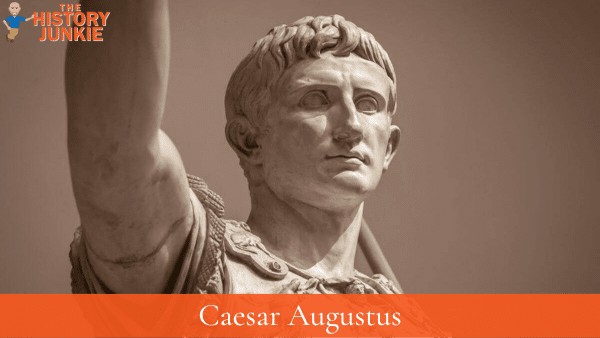
Augustus, also known as Octavian, was the first Roman emperor who ruled from 27 BC until his death in 14 AD. He is known for his role in bringing about a period of peace and stability known as the Pax Romana.
Augustus was born Gaius Octavius in 63 BC into a wealthy and powerful family. He was adopted by his great-uncle, Julius Caesar, after Caesar's assassination in 44 BC. Augustus then inherited Caesar's fortune and political power.
Also Read: Caesar Augustus Accomplishments
Augustus defeated his rivals Mark Antony and Cleopatra in the Battle of Actium in 31 BC, which gave him control of the Roman Empire. He then established a new political system known as the principate, in which he was the supreme ruler but still maintained the outward forms of the Roman Republic.
Under Augustus's rule, the Roman Empire enjoyed a period of peace and prosperity. He built roads, bridges, and aqueducts, and he also sponsored public works projects. He also promoted literature and the arts.
He was the Emporer of Rome during the Birth of Christ. The Census he requested be done is what brought Joseph and Mary to Bethlehem, where he was born.
Augustus died in 14 AD at the age of 75. He was succeeded by his stepson Tiberius.
4. Pompey the Great
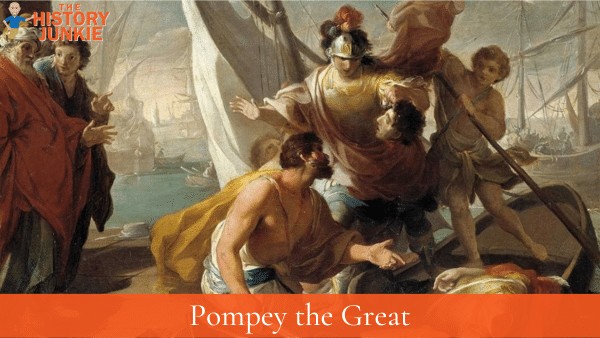
Pompey the Great, also known as Gnaeus Pompeius Magnus, was a Roman general and statesman who lived from 106 BC to 48 BC. He was one of the most successful military commanders in Roman history, and he also played a major role in the political life of the Roman Republic.
Pompey was born into a wealthy family of the Roman aristocracy. He studied law and oratory, and he also served as a military tribune.
In 77 BC, he was appointed propraetor of Spain, where he led a successful campaign against the Lusitanian tribes.
In 67 BC, Pompey was given command of the Roman navy and was tasked with clearing the Mediterranean Sea of pirates. He accomplished this task in just three months.
In 66 BC, Pompey was given command of the Roman army in the East, where he defeated Mithridates VI of Pontus and Tigranes the Great of Armenia.
Pompey's relationship with Julius Caesar deteriorated, and they eventually became rivals. In 49 BC, Caesar crossed the Rubicon River, which marked the boundary between Gaul and Italy. This act of civil disobedience led to a civil war between Caesar and Pompey.
Pompey was defeated by Caesar at the Battle of Pharsalus in 48 BC, and he fled to Egypt, where he was murdered by order of Ptolemy XIII.
5. Marcus Aurelius

Marcus Aurelius Antoninus, also known as Marcus Aurelius, was a Roman emperor from 161 to 180. He was the last of the Five Good Emperors and is considered one of the most important figures in the history of Stoicism.
Marcus Aurelius was born in Rome in 121 AD. He was the son of Annius Verus, a senator, and Domitia Lucilla. He was educated in philosophy and rhetoric, and he also served in the Roman army.
In 161 AD, Marcus Aurelius became emperor, sharing the throne with his adopted brother Lucius Verus. Verus was responsible for the military, while Marcus Aurelius handled the administration of the empire.
During his reign, Marcus Aurelius faced a number of challenges, including the Marcomannic Wars, a series of barbarian invasions. He also dealt with the Antonine Plague, a devastating epidemic that killed millions of people.
Despite these challenges, Marcus Aurelius remained committed to Stoicism, a philosophy that emphasizes the importance of reason and virtue. He wrote his personal thoughts on Stoicism in a series of books called the Meditations.
Marcus Aurelius died in 180 AD while campaigning against the Quadi. He was succeeded by his son Commodus.
6. Nero
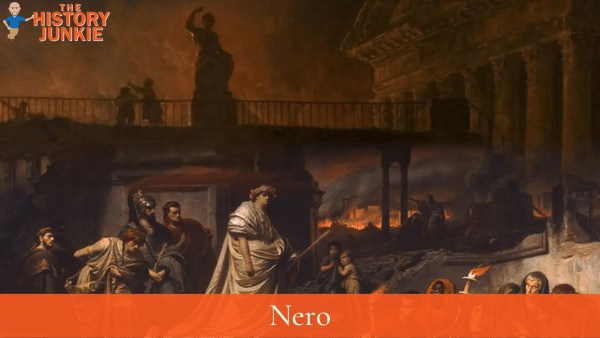
Nero Claudius Caesar Augustus Germanicus, also known simply as Nero was the fifth Roman emperor who ruled from 54 to 68 AD. He is one of the most infamous figures in Roman history, known for his cruelty and extravagance.
Nero was born in Antium, Italy, in 37 AD. He was the son of the emperor Claudius and his third wife, Agrippina the Younger. Nero's mother was a powerful and ambitious woman, and she had him declared the heir to the throne in 50 AD.
Nero became emperor at the age of 17 after Claudius was poisoned by Agrippina. He initially ruled under the guidance of his mother and the philosopher Seneca, but he soon began to assert his own authority.
Nero was a talented musician and actor, and he often performed in public. He was also a lavish spender, and he incurred a great deal of debt. He also became increasingly cruel and paranoid, and he had several of his own relatives and associates murdered.
In 64 AD, a fire broke out in Rome and destroyed much of the city. Nero was blamed for the fire, and he was accused of starting it in order to clear the way for a new palace. He responded by blaming the fire on the Christians, and he had many of them persecuted and killed.
In 68 AD, a revolt broke out against Nero, and he was forced to flee Rome. He was captured and executed by his own soldiers.
7. Cleopatra

Cleopatra VII Philopator, also known simply as Cleopatra, was the last active pharaoh of ancient Egypt. She was a member of the Ptolemaic dynasty, a family of Greek origin that ruled Egypt after Alexander the Great's death in 323 BC.
Cleopatra was born in Alexandria, Egypt, in 69 BC. She was the daughter of Ptolemy XII Auletes and Cleopatra V Tryphaena. She was educated in Greek and Egyptian culture, and she was also fluent in several other languages.
Cleopatra became queen of Egypt in 51 BC, after the death of her father. She ruled jointly with her younger brother, Ptolemy XIII. However, the two siblings soon fell out, and they went to war with each other. Cleopatra was defeated and forced to flee Egypt.
In 48 BC, Cleopatra returned to Egypt with the help of the Roman general Julius Caesar. She became his lover, and they had a son together, Caesarion. Caesar was assassinated in 44 BC, and Cleopatra then aligned herself with Mark Antony, another Roman general.
Antony and Cleopatra fought a war against Octavian, Caesar's adopted son and heir. They were defeated at the Battle of Actium in 31 BC, and they fled to Egypt. Cleopatra passed away suddenly in 30 BC. She would never be captured by Octavian.
8. Hadrian
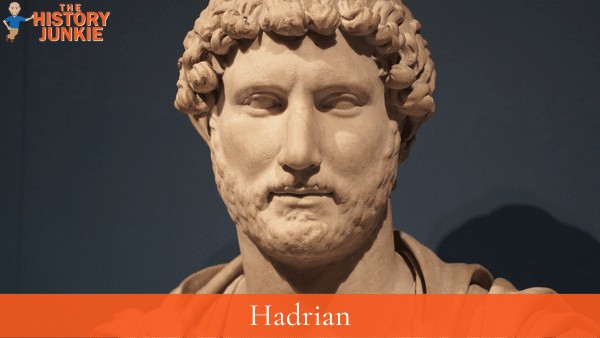
Hadrian was a Roman emperor from 117 to 138 AD. He is considered one of the Five Good Emperors, and he is known for his travels throughout the empire and his patronage of the arts.
Hadrian was born in 76 AD in Italica, Spain. He was the son of Aelius Hadrianus Afer, a Roman senator, and Domitia Paulina. He was educated in Rome and Athens, and he served in the Roman army.
In 117 AD, Hadrian became emperor after the death of Trajan. He immediately set out to travel the empire, visiting all of its provinces. He was particularly interested in the eastern provinces, and he made them the focus of his attention.
Hadrian was a great builder, and he commissioned many projects throughout the empire. He built temples, bridges, roads, and aqueducts. He also built the famous Hadrian's Wall in Britain.
Hadrian was also a patron of the arts, and he collected many works of art. He was particularly interested in Greek art and culture, and he brought many Greek artists to Rome.
Hadrian died in 138 AD in Baiae, Italy. He was succeeded by Antoninus Pius.
9. Trajan
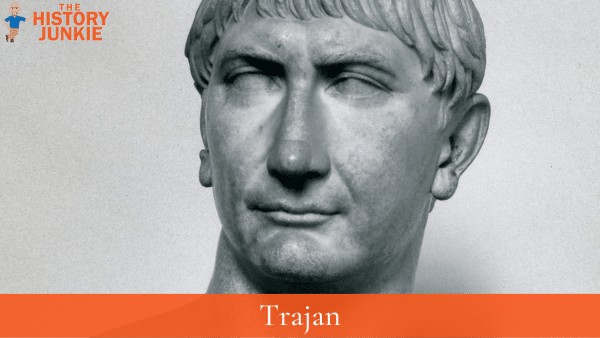
Trajan was a Roman emperor from 98 to 117 AD. He is considered one of the Five Good Emperors, and he is known for his military conquests and his building projects.
Trajan was born in Italica, Spain, in 53 AD. He was the son of Marcus Ulpius Traianus, a Roman general, and Marcia. He was educated in Rome and served in the Roman army.
In 98 AD, Trajan became emperor after the death of Nerva. He immediately set out to expand the Roman Empire, and he launched a series of successful campaigns against the Dacians and the Parthians.
Trajan's conquests added vast new territories to the Roman Empire, and he built many new roads, bridges, and aqueducts to connect them. He also built the famous Trajan's Column in Rome, which commemorates his victories.
Trajan died in 117 AD in Cilicia, Turkey. He was succeeded by his adopted son Hadrian.
10. Constantine the Great
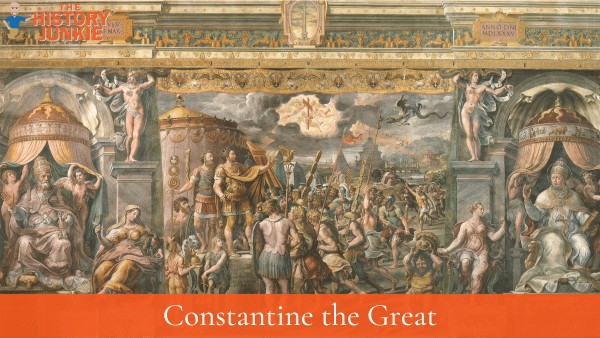
Constantine the Great, also known as Flavius Valerius Constantinus, was Roman emperor from 306 to 337. He is considered the first Christian emperor of Rome, and he is known for his role in the legalization of Christianity and the establishment of the Constantinian shift.
Constantine was born in Naissus, Moesia, in 272 or 273. He was the son of Constantius Chlorus, a Roman general, and Helena, a woman of humble origins. He was educated in Trier, Gaul, and served in the Roman army.
In 306, Constantine was proclaimed emperor by his troops after the death of his father. He then fought a series of civil wars against his rivals, including Maxentius and Licinius. He emerged victorious in 324, and he became the sole ruler of the Roman Empire.
Constantine was a tolerant ruler, and he allowed freedom of religion in the Roman Empire. He also supported the growth of Christianity, and he issued the Edict of Milan in 313, which legalized Christianity throughout the empire.
Constantine also made a number of important changes to the Roman government. He moved the capital of the empire to Constantinople, and he reorganized the army and the bureaucracy. He also promoted the development of Christianity and built many churches throughout the empire.
Constantine died in 337 in Nicomedia, Bithynia (now İzmit, Turkey). He was succeeded by his three sons, Constantius II, Constans, and Constantine II.
11. Scipio Africanus
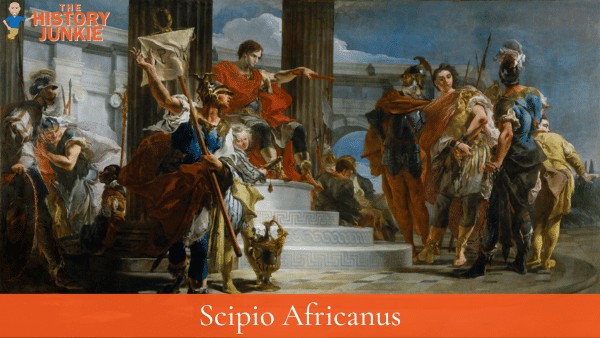
Scipio Africanus, also known as Scipio Africanus Major or simply Scipio, was a Roman general who is best known for defeating Hannibal and the Carthaginians in the Second Punic War.
Scipio was born into a wealthy and noble family in Rome. He was educated in the best schools and trained in military tactics.
In 218 BC, Hannibal crossed the Alps and invaded Italy, winning a series of victories against the Romans. Scipio was sent to Spain in 210 BC to fight the Carthaginians there.
He quickly won a series of victories, and he forced the Carthaginians to withdraw from Spain.
In 204 BC, Scipio led an invasion of Africa, where he defeated Hannibal at the Battle of Zama in 202 BC. This victory ended the Second Punic War and ensured Roman dominance in the Mediterranean.
Scipio was a brilliant military strategist and a skilled diplomat. He was also a popular figure in Rome, and he was elected consul in 194 BC. However, he retired from public life a few years later and died in 183 BC.
12. Virgil
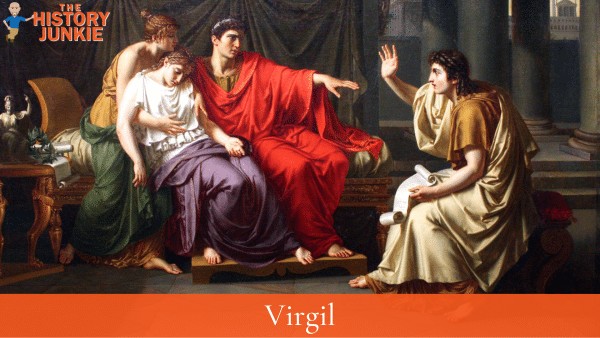
Virgil, also known as Publius Vergilius Maro, was a Roman poet who is best known for his epic poem The Aeneid.
Virgil was born in 70 BC in the Andes, near Mantua, Italy. He was educated in Rome and Naples, and he traveled extensively throughout the Mediterranean.
Virgil's first major work was the Eclogues, a collection of pastoral poems that was published in 37 BC. The Eclogues were inspired by the Greek poet Theocritus, and they were highly influential on later poets.
Virgil's next major work was the Georgics, a didactic poem about agriculture that was published in 29 BC. The Georgics were also inspired by Greek poetry, and they were highly praised by critics.
Virgil's final work was the Aeneid, an epic poem about the founding of Rome. The Aeneid was unfinished at Virgil's death in 19 BC, but it was published posthumously and became one of the most important works of Latin literature.
Virgil is considered one of the greatest poets of all time. His works are characterized by their beauty, their epic scope, and their moral depth.
13. Horace
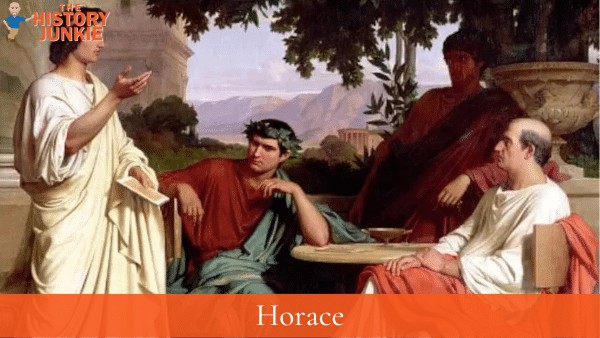
Horace, also known as Quintus Horatius Flaccus, was a Roman lyric poet who is best known for his Odes.
Horace was born in 65 BC in Venusia, near modern-day Venosa, Italy. He was the son of a freed slave and a local woman. He was educated in Rome and Athens, and he served in the Roman army during the Battle of Philippi in 42 BC.
After the war, Horace retired to a farm in the Sabine Hills, where he devoted himself to writing poetry. His first collection of Odes was published in 30 BC, and his second collection was published in 23 BC. He also wrote Satires, Epistles, and a Carmen Saeculare.
Horace's poetry is characterized by its wit, its humor, and its wisdom. He often writes about the themes of love, friendship, and nature. He is also known for his use of mythology and his mastery of the Latin language.
14. Ovid
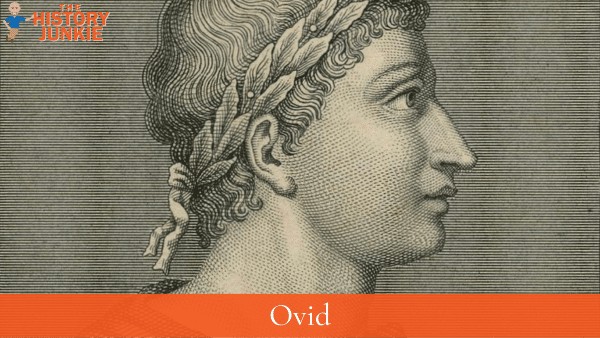
Ovid, also known as Publius Ovidius Naso, was a Roman poet who is best known for his Metamorphoses.
Ovid was born in Sulmo, near modern-day Sulmona, Italy, in 43 BC. He was educated in Rome and Athens, and he traveled extensively throughout the Mediterranean.
Ovid's first major work was the Amores, a collection of love poems that was published in 20 BC. The Amores were highly successful, and they established Ovid as a leading poet of his time.
Ovid's next major work was the Ars Amatoria, a didactic poem about the art of love that was published in 1 BC. The Ars Amatoria was also highly successful, but it also caused controversy. The Roman emperor Augustus banished Ovid from Rome in 8 AD, and he spent the rest of his life in exile.
In exile, Ovid wrote his most famous work, the Metamorphoses. The Metamorphoses is an epic poem that tells the stories of gods, heroes, and mortals who were transformed into animals, plants, and other objects. The Metamorphoses was published posthumously in 17 AD.
15. Galen
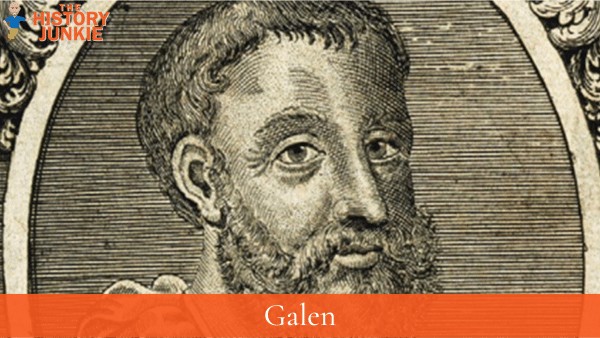
Galen, also known as Claudius Galenus, was a Greek physician, surgeon, and philosopher who is considered one of the most important figures in the history of medicine.
Galen was born in Pergamum, Asia Minor (modern-day Turkey). He studied medicine in Pergamum and Alexandria, and he practiced medicine in Rome for many years.
Galen was a prolific writer, and he wrote over 500 treatises on a wide range of medical topics, including anatomy, physiology, pathology, pharmacology, and surgery. He was also a skilled surgeon, and he is credited with developing many new surgical procedures.
Galen's work was highly influential in the Middle Ages and Renaissance, and it remained the standard medical textbook for centuries. He is often called the "Father of Medicine" for his contributions to the field.
Galen's work was based on the theories of Hippocrates, but he also made many original observations. He was the first to describe the functions of the nervous system and the circulatory system. He also developed a theory of humors, which is the belief that the body is made up of four fluids: blood, phlegm, black bile, and yellow bile.
Galen's theories were not always correct, but they were a major advance over the medical knowledge of his time. His work helped to lay the foundation for modern medicine.
